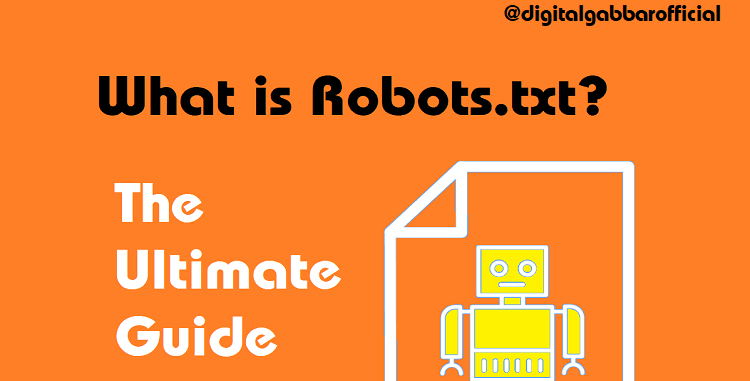Robots.txt is a word that very few people know about, but it is very useful for those who know about it. Especially for those who have a website or blog. Today, in this article, we are going to tell you about Robots.txt. Knowing about which you will benefit a lot.
If you have a website or a blog, you must have felt that at some time, there are some things that are present in your blog or website that you do not want to be visible to your visitors, but still, they become public. Do you know the reason behind this? Actually, this happens when we do not have articles or content indexes.
By the way, Robots Metatag is used to tell the search engine which folders or files are to be shown on the website and which shouldn’t. However, many search engines do not understand this metatag, which is why a lot of robot metatags come and go without notice. But with Robots.txt, you can overcome this problem, and through this, you can tell the search engine which file or folder to show and which not.
What is Robots.txt?
Robots.txt is a file that we keep on our website so that through it, we can tell the search engine which page it has to search or Crawl on your website. However, it is not that it is not necessary for the search engine to follow the rules of Robots.txt, although it does not search the file specified by Robot.nxt.
Robot.txt should always be kept in the main directory of the website so that search engines can always find it comfortably. One thing should always be kept in mind: if we do not place the file Robot.txt on the website properly, then the search engine will not implement it because it may seem that your website does not have Robot.txt. Because of this, the web pages of your website will also not be indexed, so Robot.nxt should be placed correctly or else the ranking of our website or blog can also be damaged.
Whenever a search engine accesses your website or blog for the first time, its first task is to crawl the file of Robot.txt on your website or blog so that it can get information about which file on your website does not have to access to it and which file or folder do not.
When Can a robots.txt file be Beneficial?
So far, we have understood what Robots.txt is and what its function is. Now we will know when the Robot.txt file can be beneficial for us.
- When we want any search engine not to index some pages on your website.
- When we want some other files, such as images, PDF files are not indexed by the search engine.
- When we want the search engine to ignore the duplicate page on our website.
- When we want to tell the search engine that our website contains Sitemap.
How to Create Robots.txt File?
If you have not yet created a Robot.txt file in your website or blog, then you should create it so that you can get the benefit of it in the long run. Now let us know how we can create a Robot.txt file.
- First of all, you have to create a text file which has to be renamed after Robots.txt and save it. You can use Notepad to create this text file.
- After that the file has to be uploaded in the root directory of the website, we also know it as ‘htdocs’ and it appears only after the name of our domain.
- If one uses subdomains, then he needs to create separate Robots.txt files for all his subdomains.
What are the Benefits of robots.txt?
As we have already understood that Robots.txt is very important for our website or blog, let’s now know about some of the benefits of Robots.txt.
- With the help of Robots.txt, we can get our web page indexed through Google Bots.
- Through Robots.txt, we can keep the sensitive information available on our site out of reach of anyone.
- With the help of Robots.txt, we can also overcome the problem of duplicate content.
What is the Syntax of Robots.txt?
At the time of using robots.txt, it is also very important for us to know what syntax is used in it.
- Disallow – This syntax is used so that we can block pages that we want someone else to access.
- Noindex- Using this syntax, no search engine will index the pages you do not want to index.
- User-Agent- This refers to those robots that follow all kinds of rules.
- Hash Symbol (#) – We can use this syntax to comment in the Robots.txt file.
- Blank Line- If you want to separate all the User-Agent or Disallow groups, then a Blank line is used for this.
- Case-Sensitive – One thing to always remember is that all the directories and file names in Robots.txt are case-sensitive, so keep this in mind while writing.
If Robots.txt is Not Used.
When we do not use Robots.txt on our website or blog
The search operation can crawl any web page or part of our website because it does not get instructions about which pages are not to be accessed. Using robots.txt, our website pages get indexed, which is very beneficial for our website.
We hope that you have got very important information about Robots.txt today. Further, we will continue to share such important information with you.


